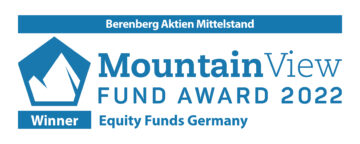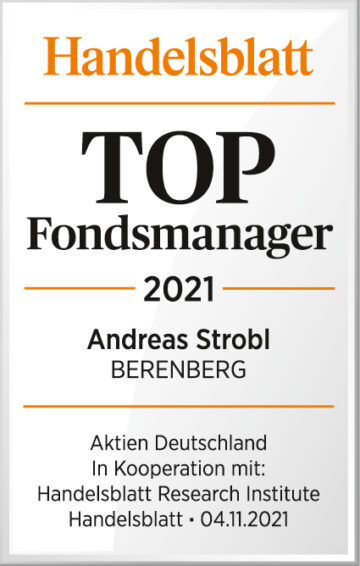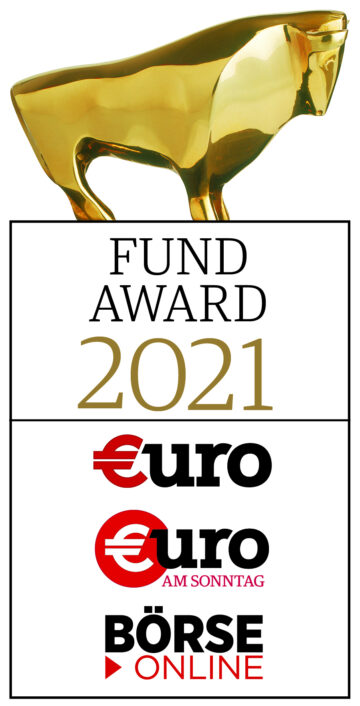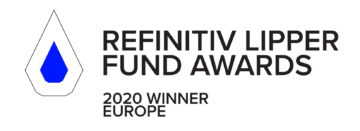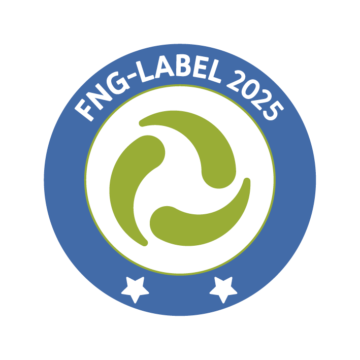Investment Strategy
Hidden champions with above-average growth and leading products can be found especially in the German small cap segment. The focus of Berenberg Aktien Mittelstand is on established niche companies that have focused business models and strong market positions both in their home markets and globally. The strategy is based on a disciplined bottom-up stock selection, focusing on companies with excellent business models, strong entry barriers and top management – many of them owner-managed.
- Concentrated portfolio of 25-45 stocks
- Mid-cap approach; small- and micro-caps can be added
- Long-term investment horizon and low portfolio turnover
- Benchmark-agnostic selection
Learn more about our investment philosophy in equity fund management
Further details on the opportunities and risks of this fund can be found in the sales prospectus.
Indexed performance
Performance in 12-month periods
Currencies
Sectors
Countries
Asset classes
Top Holdings
Monthly market comment
European equities once again outperformed US equities, although much had already been priced in. A possible US economic slowdown in Q2 and trade disputes could noticeably increase volatility. Berenberg Aktien Mittelstand was unable to beat its benchmark. Despite strong full-year figures, shares in Suess were disappointing due to the general sell-off in AI stocks. Stratec performed worse than expected. Formycon shares disappointed after the company announced a larger than originally expected price reduction for the biosimilar Stelara in the USA. This resulted in significantly reduced earnings per share. NFON shares performed very favourably after the company confirmed its full-year targets for 2024 and announced a positive outlook for 2025. Jungheinrich performed positively after hopes emerged for a ceasefire in Ukraine and the corresponding reconstruction measures. Flatex also impressed with good January figures and provided solid long-term guidance.
Portfolio Management

Andreas Strobl
Andreas Strobl has been a Portfolio Manager at Berenberg since November 2016. He began his professional career in 2002 as a Sell-Side Analyst at BayernLB in Munich. In 2006, he moved to Allianz SE (Aequitas GmbH) as a senior Investment Manager. Since 2015, Andreas Strobl has worked as a Senior Portfolio manager at Allianz Global Investors in Frankfurt, where he was responsible for the management and development of various European Small/Mid-Cap equity portfolios. He studied business administration at the LMU in Munich. In 2005, he graduated at the top of his class as a CIIA (Certified International Investment Analyst) and CEFA (Certified European Financial Analyst).

Sebastian Leigh
Sebastian Leigh has been Portfolio Manager at Berenberg since October 2017. Previously, he spent three years as an Associate in the Assurance division of EY, with a primary focus on automotive and healthcare companies. He studied Accounting and Finance at the University of Kent.
Consideration of ESG Elements
Identifying companies and business models that will be successful in the long term is the basis for good investment decisions. Environmental, Social and Governance (ESG) factors are key factors in decision making and are therefore integral
components of the investment process.
CO₂-Intensity
The fund does not actively manage its carbon footprint, however, emissions data such as CO2 intensity are relevant parameters which can be used to assess the efficient management of a company and the extent of transition risks.
ESG Score
The data provider MSCI ESG uses an ESG score of 0 to 10 to assess the management of material ESG risks of portfolio holdings compared to competitors.
ESG Controversies Screen
Investments in the fund are monitored for ESG controversies and, with the help of MSCI ESG data, flagged according their severity. Thereby, potential ESG risks of investments are identified. In the case of an orange flag (severe controversy), we enter into an active exchange with the company. In the case of a red flag (very severe controversy), the company is excluded.

